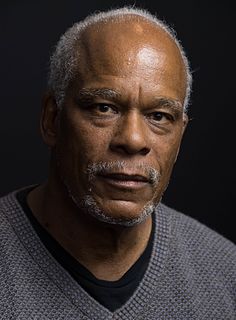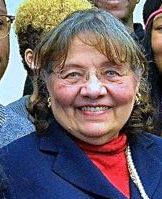A Quote by Carl Hart
Take crack cocaine. Particularly in the early days of the policy, ninety percent of the people being arrested were black, even though they didn't use the drug at higher rates and even though their numbers in the general population are so low. How could that be? The thing is, you place all your resources in communities of color. And if you do that, you're going to arrest black people.
Related Quotes
The War on Drugs is a war on people, but particularly it's been a war on low-income people and a war on minorities. We know in the United States of America there is no difference in drug use between black, white and Latinos. But if you're Latino in the United States of America, you're about twice as likely to be arrested for drug use than if you're white. If you're black, you are about four times as likely to be arrested if you're African American than if you are white. This drug war has done so much to destroy, undermine, sabotage families, communities, neighborhoods, cities.
If you don't know about the 'black male code,' you should. It's something black boys learn early, even before adolescence. It goes, in part, like this: Even though you're not a criminal, some people assume you are, especially if you're wearing certain clothes. Never argue with the police, but protect your dignity and take pride in humility.
The policy that received more attention particularly in the past decade and a half or so has been the US cocaine policy, the differential treatment of crack versus powder cocaine and question is how my research impacted my view on policy. Clearly that policy is not based on the weight of the scientific evidence. That is when the policy was implemented, the concern about crack cocaine was so great that something had to be done and congress acted in the only way they knew how, they passed policy and that's what a responsible society should do.
Black is the absence of all color. White is the presence of all colors. I suppose life must be one or the other. On the whole, though, I think I would prefer color to its absence. But then black does add depth and texture to color. Perhaps certain shades of gray are necessary to a complete palette. Even unrelieved black. Ah, a deep philosophical question. Is black necessary to life, even a happy life? Could we ever be happy if we did not at least occasionally experience misery?
Most Americans violate drug laws in their lifetime, but the enemy in this war has been racially defined. Not by accident, the drug war has been waged almost exclusively in poor communities of color, even though studies have consistently shown - for decades - the people of color are no more likely to use or sell illegal drugs than whites.
My mom is Jamaican and Chinese, and my dad is Polish and African American, so I'm pretty mixed. My nickname in high school was United Nations. I was fine with it, even though I identify as a black woman. People don't realize it hurts my feelings when someone looks at my hair or my eyes, and says, "But you're not actually black. You're black, but you're not black black, because your eyes are green." I'm like, "What? No, no, I'm definitely black." Even some of my closest friends have said that. It's been a bit touchy for me.
Usually we look at it like, "Oh, black people couldn't vote in Mississippi because they had to take a literacy test." But one of the things you learn in the film is that there were major consequences for even trying to vote. You could be killed for trying to vote. You could definitely be fired from your job and many were, which is why so few black Mississippians even attempted to register early on. They put your name in the newspaper if you tried to register to vote.
Of course in this age of colorblindness, a time when we have supposedly moved "beyond race," we as a nation would feel very uncomfortable if only black people were sent to jail for drug offenses. We seem comfortable with 90 percent of the people arrested and convicted of drug offenses in some states being African American, but if the figure was 100 percent, the veil of colorblindness would be lost.
The system functioned relatively automatically, and the prevailing system of racial meanings, identities, and ideologies already seemed natural. Ninety percent of those admitted to prison for drug offenses in many states were Black or Latino, yet the mass incarceration of communities of color was explained in race-neutral terms, an adaptation to the needs and demands of the current political climate.
I have 90 percent or 95 percent support in the African American community and it's not sort of "Well, he's black, so it's okay. We're not going to say anything even though we're seething." And I hang out with a lot of middle-aged black women, and they're not casual in their support of me. There's a lot of love forthcoming. Partly because they understand the constraints of this society. They know that this is hard.
































